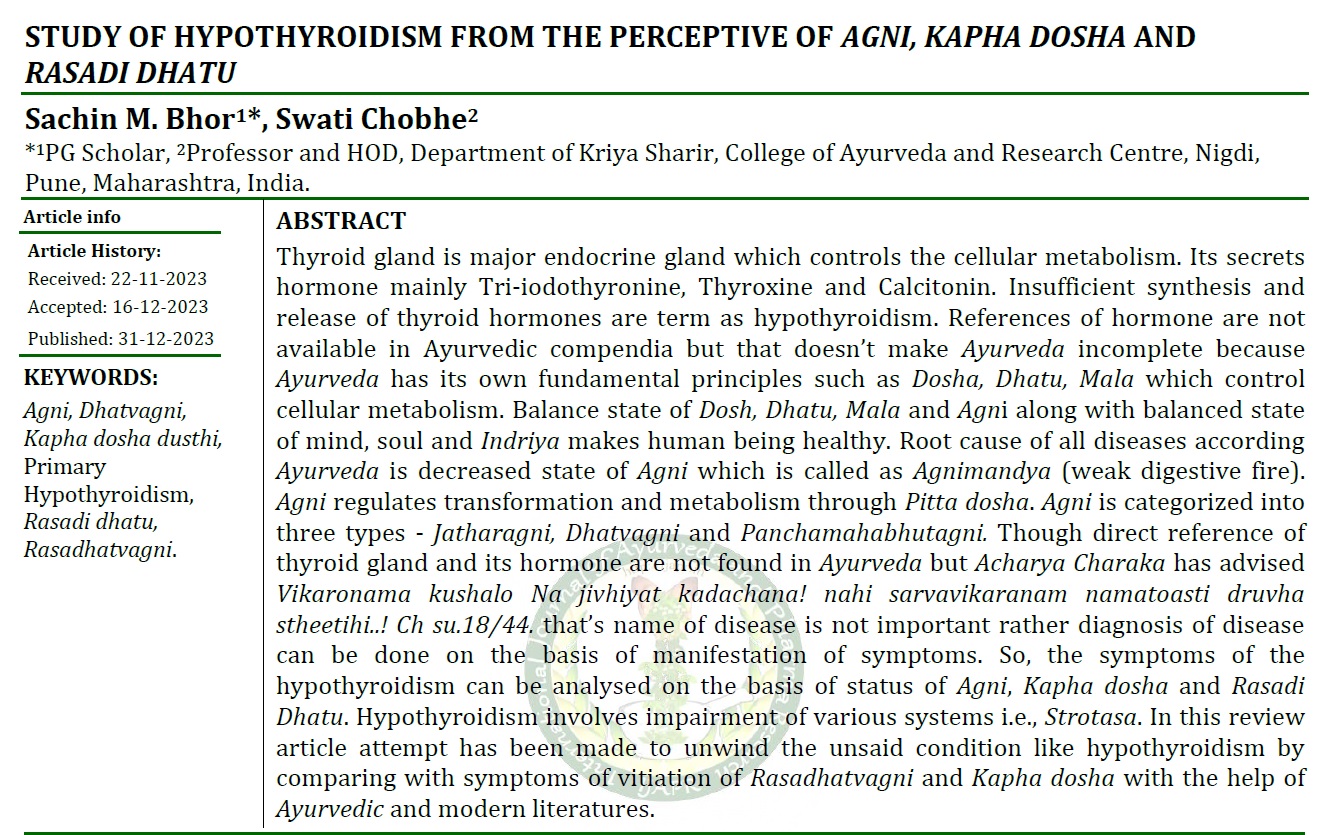Study of Hypothyroidism from the Perceptive of Agni, Kapha Dosha and Rasadi Dhatu
DOI:
https://doi.org/10.47070/ijapr.v11i12.3047Keywords:
Agni, Dhatvagni, Kapha dosha dusthi, Primary Hypothyroidism, Rasadi dhatu, RasadhatvagniAbstract
Thyroid gland is major endocrine gland which controls the cellular metabolism. Its secrets hormone mainly Tri-iodothyronine, Thyroxine and Calcitonin. Insufficient synthesis and release of thyroid hormones are term as hypothyroidism. References of hormone are not available in Ayurvedic compendia but that doesn’t make Ayurveda incomplete because Ayurveda has its own fundamental principles such as Dosha, Dhatu, Mala which control cellular metabolism. Balance state of Dosh, Dhatu, Mala and Agni along with balanced state of mind, soul and Indriya makes human being healthy. Root cause of all diseases according Ayurveda is decreased state of Agni which is called as Agnimandya (weak digestive fire). Agni regulates transformation and metabolism through Pitta dosha. Agni is categorized into three types - Jatharagni, Dhatvagni and Panchamahabhutagni. Though direct reference of thyroid gland and its hormone are not found in Ayurveda but Acharya Charaka has advised Vikaronama kushalo Na jivhiyat kadachana! nahi sarvavikaranam namatoasti druvha stheetihi..! Ch su.18/44. that’s name of disease is not important rather diagnosis of disease can be done on the basis of manifestation of symptoms. So, the symptoms of the hypothyroidism can be analysed on the basis of status of Agni, Kapha dosha and Rasadi Dhatu. Hypothyroidism involves impairment of various systems i.e., Strotasa. In this review article attempt has been made to unwind the unsaid condition like hypothyroidism by comparing with symptoms of vitiation of Rasadhatvagni and Kapha dosha with the help of Ayurvedic and modern literatures.
Downloads




